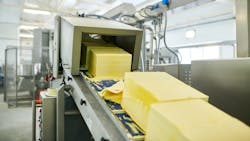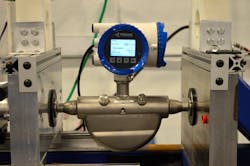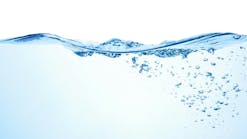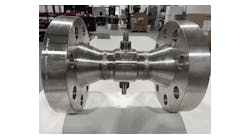Case Study: Flowmeters improve grease separation and recovery for food processor
A processor of frozen bakery products, packed margarine and shortenings wanted a better process for recovering grease from margarine returned from production departments and customers. In the original process, the returned margarine was melted and pumped into tanks where it formed into three layers of density: water, grease and emulsified grease residues. The various layers were separated by measuring the conductivity of each liquid using two level detection units. Using that data, the operator determined where to transfer the product.
For years, the company moved the recovered grease to another plant for further processing while the water was disposed of in a sewer system. This was no longer acceptable, so, to avoid sending grease into the sewer system, operators constantly sampled the liquid to determine the correct location. This process resulted in a considerable waste of good fats, causing a loss of revenue for the food processor as well as creating unnecessary pollution.
To improve the accuracy of the separation process, the food processor replaced level detection units with flowmeters. This provided a solution that ensured a smooth-running grease recovery process at the plant with minimal waste and no ecological harm.
Challenges
- The food processor sought to considerably increase the accuracy of the separation process to improve the grease recovery process while reducing the ecological footprint by lowering the quantity of grease transferred into wastewater.
- The density, thickness and viscosity of the grease and its changing thickness could affect the accuracy of flowmeters with moving parts.
Solution
AW-Lake quickly realized that the process was very similar to applications that their TRICOR Coriolis meters have been solving in the crude oil seperator market. For this application, AW-Lake’s TCMQ TRICOR Coriolis Mass Flow Meter offered an extremely compact and accurate density measurement solution that excelled in performance, safety and user-friendliness. With the Coriolis mass flow meter measuring the specific liquid density, the new process can more accurately differentiate between the emulsion and grease layer, resulting in fewer polluting substances entering the wastewater. Completely automated and intuitive, the new system provides a user-friendly display and reliable results.
Notable features of the TCMQ TRICOR Coriolis Mass Flow Meter that proved important to the success of this installation include:
- Unparalleled security and accuracy owing to a high-speed diagnostic package with four levels of security in accordance with OIML standards.
- Compact design and simple installation for space savings and cost reduction.
- With no moving parts, the flowmeters are not affected by the density, thickness and viscosity of the grease.
- An extremely user-friendly interface reduces training costs and guarantees fast commissioning.
- Rugged housing and low profile tube design guarantee an ideal measurement environment with 0.1% accuracy and 0.05% repeatability.
- Numerous connection options including tri-clamp designs.
- Quick data transfer via integrated USB port and a digital sensor link for remote versions support various configurations.
- Removable SD memory card store operation and factory parameters, calibration data and certificates.
- 3A sanitary certification allowing CIP and quick breakdown for cleaning.
Results
The food processor noted that they have had no issues with the new installation and believe it is a perfect example of a 100% reliable solution.
Based on the success of the installation, the TCMQ TRICOR Coriolis Mass Flow Meter is being incorporated into other applications. For example, the instrument is used to monitor the constant flow in the cooling system to guarantee consistent quality. The food processor will continue to consider AW-Lake’s TCMQ TRICOR Coriolis Mass Flow Meters when moving forward with new projects or optimizing existing processes.



